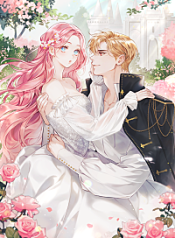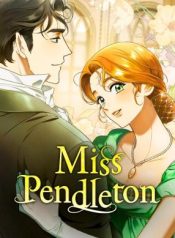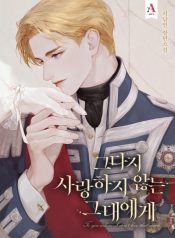Letter 1: From Laura S. Dalton to Henry Fairfax
To my dearest nephew, Henry,
Hello, Henry. This is your Aunt Laura. I hope you’ve made up for any lack of sleep from staying up all night with a good afternoon nap.
I received both of your letters. I heard from Samuel, the postman, that Billy, the servant from Dunville Park, came to deliver your first letter at five in the morning. The second one arrived at eight.
Having to travel two hours back and forth, twice, in the morning dew—Billy must have been quite displeased, though he didn’t show it. If Billy spreads word around the village, Dunville Park might struggle to find servants in the future. Be sure to praise him well and give him a generous tip for his trouble.
In any case, I received both letters. Regrettably, Henry, by the time your second letter arrived, I had already read your first one three times and was in the middle of writing a reply. You know how early mornings are at Whitefield.
I can just picture you in despair. You haven’t evaporated into a patch of mint grass, have you? Don’t do that, Henry. I much prefer the flesh-and-blood Henry to a grassy one.
Let me assure you, Henry, the letter you sent at dawn didn’t turn my heart to disappointment. On the contrary, it made you seem more human, more lovable. You’re so very twenty-four—stumbling before the many paths stretching out ahead of you, like the young man you are.
You remind me of a lady I once knew, who was in a similar position. She was twenty-five and had just rejected a fine gentleman’s proposal. She was immensely talented but despairing, unable to find a way to break through reality’s constraints. Do you know what she did the next year? She crossed the sea to Asia with her beloved!
Henry, I can’t give you clear answers about your future. That’s something you must figure out for yourself. Nor can I berate you, as you asked in your dawn letter, by claiming you lack talent. That would be both presumptuous and utterly false.
Lately, you’ve been bringing your childhood drawings to Whitefield often. On the surface, it was to reminisce with the uncle who taught you to draw, but in truth, you were trying to prove to me that your talent is merely ordinary. I haven’t said anything about your art until now, but I’ll confess through this letter.
Henry, in your paintings, I see the young Monet.
I’d love to have an open, heartfelt talk with you about this. Pour out all the worries in your heart to me. In return, I’ll tell you about the painter Louis Sheldon, who’s kept you up at night.
I’ll have cookies baked and waiting. Until we meet again, farewell.
From Mrs. Laura S. Dalton,Daughter of the great painter Louis Sheldon.
P.S. I haven’t told Ian about your letters. I couldn’t show him a letter filled with complaints about your uncle that you didn’t truly mean. Would you prefer to keep your concerns private?
If so, let’s keep your visit a secret too. Your uncle will be out all day tomorrow negotiating compensation with the executives of a construction company. The size of his legal team has left their president and executives utterly demoralized. They’ll likely go bankrupt after paying the settlement.
In any case, your uncle will be away from the manor all day tomorrow, so come by if you’d like.
P.S. 2. In the future, please don’t send letters written at dawn right away.
Letter 2: From Henry Fairfax to Laura Dalton
To my beloved Aunt Laura,
Hello, Aunt. This is Henry.
I feel a bit embarrassed, picking up a pen to write to you the day after spending half a day by your side—it’s almost like I’m acting like Olivia. That girl follows you around like a gosling imprinting on its mother, mimicking your every move. I’ll stick to being plain old human Henry Fairfax. You wouldn’t want two goslings, would you?
I’m writing this letter to express my gratitude. Thanks to you, I’ve found peace and happiness again.
Yesterday’s visit became the warmest memory of my life. After being warmly welcomed by you, we strolled through the Long Gallery after lunch, admiring the paintings. You asked me about my favorite artists and styles.
I got carried away with excitement, rambling on incoherently. Thinking back, my one-sided chatter was so excessive it makes my face flush. But you listened earnestly, with that gentle smile that effortlessly puts one at ease.
As the afternoon sunlight began to slant, we moved to the fireside. The cozy sofa and the glow from the fireplace made me even more candid.
I poured out all my conflicting feelings about painting to you. Just as in the Long Gallery, you listened to my disorganized babbling without missing a word, with the same earnestness. You looked at this cowardly novice—who fled from his dreams yet still wants to believe he has talent—with infinite understanding and not a hint of judgment.
When I had spilled all the simmering emotions in my heart, you offered me tea. While I sipped it, you told me about two men, the most meaningful artists you knew. One was Mr. Sheldon, your father—a diligent painter with delicate sensibilities who left great works but was called to God too soon.
You said your father’s life was beautiful. Though he had to part with his daughter due to a lack of funds and passed without seeing fame, you said his face, absorbed in painting, always radiated happiness.
As I listened, I thought of Mr. Sheldon’s keepsakes—worn personal items, marked by the passage of time yet never shabby, always dignified. I believe he was as refined as the objects he used. A person’s character is like a fragrance, lingering on the things they touch, the places they linger, and the home they live in.
You then spoke of another artist: Uncle Ian. You said he remains faithful to his duties yet never easily sets down his pencil or brush. Though not known to the world as a painter, to you, your husband is your own Da Vinci.
You concluded with this:
“The two painters I love lived vastly different lives: the life of a poor artist and that of a wealthy landowner. Don’t they seem like the two paths before you? You might feel they’re as far apart as heaven and earth. But to me, they’re not so different. My father loved painting, so he lived happily doing what he loved. Ian, though not a painter by trade, is joyful when sketching. A profession is merely a form. The essence is one thing: are you doing what you love?”
At first, your words didn’t fully sink in. But upon reflection, I realized you meant that I don’t need to become a painter to paint. You were telling me not to be bound by a profession and to do what I love.
Yes, I don’t have to be a painter to paint. It was through you that I finally came to accept this.
Just now, I took out the art supplies I used as a child. The fine paints and brushes I took to Paris were given away to friends when I left. The amateur paints are dull and limited in color, the brushes stiff as horsehair even after soaking. But after finishing this letter, I’ll paint with them. I’ll paint whatever my heart desires.
The world may be in autumn, but my heart is a vibrant July, greener than any summer. You, like Demeter, have brought a lively season to my soul.
I’ll visit again soon, with my new paintings—not to sow doubt, but to earn your praise. Dear Goddess Demeter, please praise my paintings with your warm smile.
From your nephew, Henry Fairfax,Who loves you as much as his brushes and paints.
P.S. Before sealing this letter, I have a confession to add. I can’t go into details, but there’s a memory in my heart I wish to forget. It’s the greatest wound of my youth, one that made me think I could never trust women again.
But after half a day with you, I’ve regained my trust in women. If someone like you exists, there’s no need to distrust women as a whole. You’ve proven that there are women in this world who do their utmost to guide a wandering man. You are a hope, not just for me, but for all men.
Letter 3: From Henry Fairfax to Laura Dalton
To the revered Goddess Demeter,
Hello, Aunt. I hope the cold you were suffering from during last week’s visit has improved. Please forgive me for not visiting in person to check on you. George’s tutor ran off again, so I have to teach him Greek until we find a new one. Some days, I think it’d be easier to teach a chicken quadratic equations, but the time spent with George feels precious. I’ve never spent so much time with him before.
My concern, though, is that no matter how simply I explain things, George’s brain seems to repel everything like it’s made of rubber. He’s supposed to enter public school in two years, and before then, he needs to learn the basics of British history and Greek. If he doesn’t master these, he won’t be able to keep up with the academic level.
I’ve heard you were an excellent governess in your time. Could you offer a few words of advice for me, tasked with George’s education?
I await your reply. Farewell.
From Henry,The short-term tutor who despises your cold.
P.S. I’m sending a recent painting along with this letter. It’s of you sitting by the fireside.
Cold Male Lead Became My Clingy Husband (Female-Dominant)
Feng Bai Su transmigrated into a matriarchal novel, becoming the sister of the female protagonist and the Seventh Princess of the Feng Ling Kingdom.
After working herself to death in her previous life, finally reincarnating as a princess, she only wanted to be a lazy fish who could eat, sleep, and play.
Until she met the male protagonist from the book, Wei Jing Mo, and he took a liking to her!
Wei Jing Mo is the top young man in Feng Ling City, talented in both appearance and ability, from a prestigious family, with a cold and otherworldly appearance, a figure like the bright moon in the hearts of noble ladies. It was thought that only the most powerful and talented noble lady in Feng Ling City would be worthy of such a brilliant young man. Who knew that this young gentleman would secretly admire the infamous Seventh Princess?
Short scene 1:
Feng Bai Su looked at the young man crying like a pear blossom in the rain before her, and couldn’t help but doubt her life.
Wasn’t the male lead described as a cold and otherworldly figure in the book?
Then who was this poor little thing crying with swollen red eyes and tear-stained face?
Short scene 2:
Wei Jing Mo stared intently at Feng Bai Su who was about to go out, wanting to say, “Be careful on the road.”
Before he could speak, Feng Bai Su suddenly bent down and bit his cheek.
Her peach blossom eyes were full of disdain: “Tsk! You’re so clingy!”
Wei Jing Mo: “…”
A talented fox spirit female lead with a flirtatious appearance but actually abstinent VS A cold-looking but actually naive and clingy little jealous male lead




